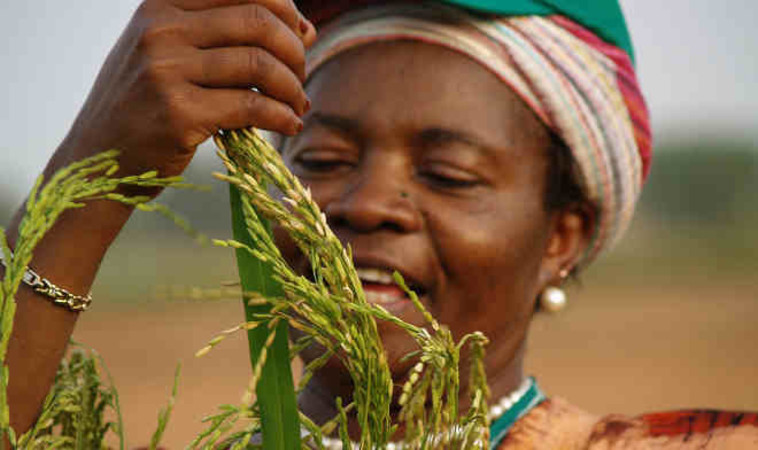A farming project in Vihiga County that encourages people living with HIV to grow traditional vegetables and legumes has been the saving grace for a majority of the area’s residents, in more ways than one.
Dubbed the Rural Outreach Programme (ROP), the programme has helped unite families by dispelling myths surrounding HIV and Aids, and enabling members interact freely with one another.
The project has also enabled members earn a decent living through the sale of produce.
Beatrice Jumba 36, who lives with HIV after her husband died of HIV/AIDS related complications two years ago, is one such farmer. With a sizeable piece of arable land and elaborate farming skills offered to her by experts from ROP, the mother of two teenagers has been successful in yam and soya beans farming. From her effort, she gets enough vegetables for use at home and for sale.
Doris Anjawa, the organisation’s field coordinator, who specialises in nutrition, says yam leaves, commonly known as ‘Seveve’, are a delicious class of vegetables and have no saturated fats. “They also have high levels of vitamin A and C, enhancing the strength of the immune system,” said Anjawa.
Jumba says that before the ROP project she used to plant maize on sections of the farm and buying vegetables for home use.
“I would buy Seveve at Mbale market for Sh30 thrice a week and six eggs daily, for Sh72, but nowadays, I get the vegetables from my garden, and I even have enough to sell,” she said.
Janet Esendi has all praises for the initiative that has seen her daughter continue to live a healthy life to the dismay of village folk, who predicted that her death would come one month after contracting HIV/AIDS. With indigenous vegetables like pumpkin leaves, cow peas and Amaranthus (sometimes called Wandering weed), rising in her backyard, Esendi is less worried about access to vitamin supplements, which she finds expensive and less nutritious.
Prof. Ruth Aniang’o, a nutritional science lecturer at Great Lakes University in Kisumu, who is also the founder of the Project says that most of indigenous vegetables have medicinal value due to their high vitamin content that boosts immune system.

In a research she conducted and published in her monthly food science journal African Journal of Food, Agriculture, Nutrition and Development (AJFAND), Prof. Aniang’o who has experience in Nutrition spanning over 30 years, says that traditional African vegetables have high levels of vitamin K since they have photosynthetic tissues known as Phylloquinone, which is a fat-soluble vitamin that may not be present in many other vegetables and fruits.
Since its inception in 1992, the ROP has grown to offer solutions to social economic problems such as the stigma associated with HIV/AIDS and food insecurity. A close review of the change in HIV prevalence rate in the region, for instance, tells the success story of this organisation.
The HIV/AIDS pandemic hit the region in late 1980s an aspect that provoked Prof. Aniang’o to initiate this programme. Although the prevalence rate was on a rise from 1990 to 1994, with the highest being 7.1 percent, the it dropped over years to 5.2 percent in 2014. Dr. Victor Zimbulu, a medical officer in Sabatia attributes this drop to awareness programmes mostly carried out by Non state agencies.
He singles out Rural Outreach Program as the most influential because it does not only preach the gospel of abstinence and use of contraceptives, but also educates the public on healthy diets. Prof. Judy Kimiywe Ongaji, an associate professor and lecturer at Kenyatta University’s Department of Foods, Nutrition and Dietetics who hails from Vihiga County has all praises for the Alliance for a Green Revolution in Africa (AGRA)-funded project.
Prof. Ongaji, who has conducted several studies on HIV/AIDS and nutrition, predicts that eating of traditional foods and vegetables will raise the life expectancy from 58 to 61 and 57 to 60 in women and men, respectively, as those foods have less fats compared to the processed foods most people prefer .